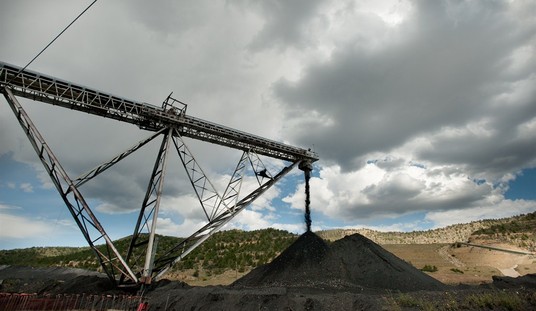If this ruling is allowed to stand — and remember, this is Barack Obama’s NLRB — it will radically alter the face, the finances, and the reality of college sports.
But there are a lot of headwinds to navigate — including the fact that the national NLRB has to weigh in on the matter — so the odds are not good the players will win out in the end.
Basically, the Northwestern University football players were claiming that they should be designated “employees” while the school and the NCAA claim they are “students.” If they are employees, they should be able to unionize. And that’s just what regional NLRB director Peter Sung Ohr ruled.
The “employee” distinction is a landmark one because it contradicts the NCAA’s longtime stance that athletes are students and amateur athletes, and should not be compensated beyond their scholarships. The NCAA could not immediately be reached for comment.
“I have found that all grant-in-aid scholarship players for the Employer’s football team who have not exhausted their playing eligibility are ’employees,'” wrote National Labor Relations Board regional director Peter Sung Ohr in a 24-page decision released Wednesday.
The College Athlete Players Association filed the petition on behalf of Northwestern athletes, identified in the ruling as “a labor organization.”
Northwestern plans to appeal the decision to the NLRB’s national office in Washington by the April 9 deadline, school officials said.
In a statement, NCAA chief legal officer Donald Remy said: “We strongly disagree with the notion that student-athletes are employees. We frequently hear from student-athletes, across all sports, that they participate to enhance their overall college experience and for the love of their sport, not to be paid.”
Remy’s statement also said that NCAA member colleges and universities have evaluated the association’s amateurism rules in recent years and that improvements need to be made, but that “we do not need to completely throw away a system that has helped literally millions of students over the past decade alone attend college.”
Alan K. Cubbage, Northwestern vice president for university relations, issued a statement about the decision: “Northwestern University is disappointed by today’s ruling by the regional director of the National Labor Relations Board finding that Northwestern University’s football players who receive grant-in-aid scholarships are employees and directing that a secret ballot election be held to determine whether the football players should be represented by the College Athletes Players Association for purposes of collective bargaining with Northwestern University.”
Cubbage’s statement went on to say, “While we respect the NLRB process and the regional director’s opinion, we disagree with it. Northwestern believes strongly that our student-athletes are not employees, but students. Unionization and collective bargaining are not the appropriate methods to address the concerns raised by student-athletes.”
One assumes that the reason the players wish to unionize is to end the fiction that players don’t get “paid” to play sports. In addition to a $100,000 a year college education, most players get other “goodies” allowed by the NCAA’s wildly complex and byzantine eligibility rules. With the ability to unionize, will the players want a cut of TV contracts? If a coach can get a couple of million dollars, why can’t players get their cut?
The USCs, Notre Dames, and Alabamas whose athletic programs actually make money for the university are few and far between. It doesn’t make sense for a college players union in any sport to lobby for cash benefits. For the vast majority of schools, the money simply isn’t there. On the other hand, if the players want to unionize in order to lobby for better health benefits or improved working conditions (better training facilities, study halls, etc.), that might be more realistic.
Colleges serve as the minor leagues for both professional football and basketball (less so for baseball). Scholarship athletes pointing toward a pro career use the university athletic system as a way station on their path to professionalism. Most schools don’t require athletes to expend much brainpower during their stay, although there are notable exceptions. So what is the philosophical basis for this union? The athletes get a free education at an elite school, all their needs attended to, help with their studies, and the adulation and glory that go with college sports. What’s missing here? I don’t see it, and it may be that the national NLRB won’t see it either.
And what of those scholarship athletes — the vast majority of them — who will never realize their dreams of playing pro ball? Or other scholarship athletes in sports like women’s field hockey or swimming where there are no professional opportunities at all? Unionizing college athletes sounds like the “hip” thing to do, but on a practical basis, there’s no rational basis for one.










Join the conversation as a VIP Member